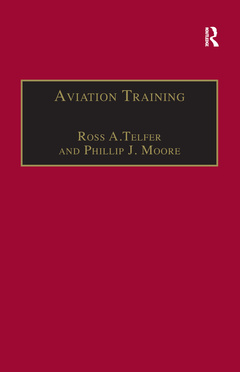Aviation Training Learners, Instruction and Organization
Auteurs : A.Telfer Ross, Moore Phillip J.

Date de parution : 11-2016
15.6x23.4 cm
Thèmes d’Aviation Training :
Mots-clés :
Aviation Training; cockpit; CRM; resource; Human Factors Training; management; Follow; human; Situational Awareness; factors; Cabin Crew; cabin; Flight Crew; crew; Federal Aviation Administration; situational; Airline Training; awareness; CRM Training; industry; Training Captain; Line Captains; CRM Trainer; Ab Initio Pilots; CBT; FO; Feedback; Loft Scenario; Air Niugini; USA; Ab Initio Training; Safety Seminars; Cadet Pilot; Play Back; Cockpit Crew



